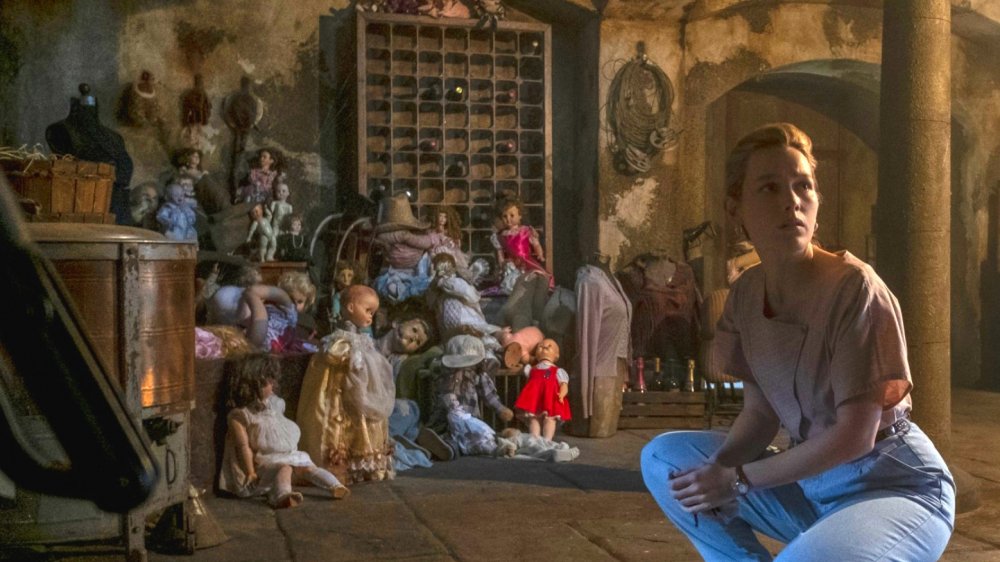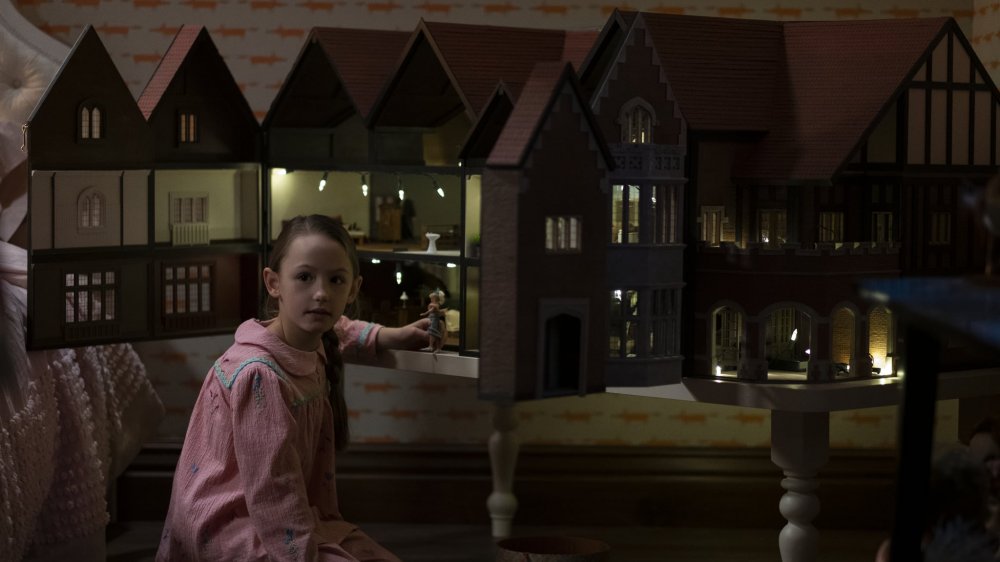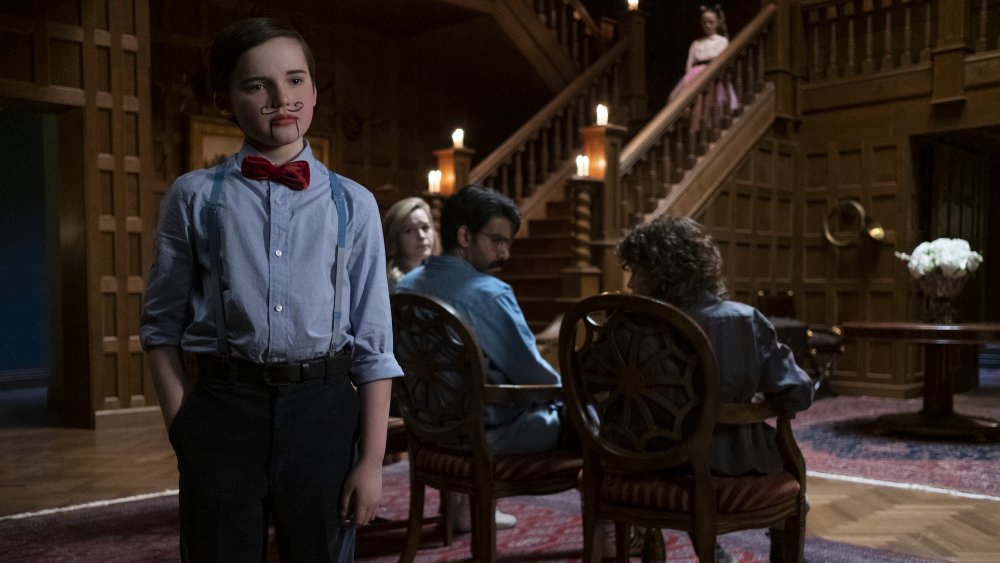Why The Dolls On The Haunting Of Bly Manor Mean More Than You Realize
A significant piece of imagery in Netflix's new horror story The Haunting of Bly Manor — the second season of the anthology series that started with The Haunting of Hill House — is a dollhouse, and the many different figurines that live inside it. Flora (Amelia Bea Smith), who lives at Bly Manor with her brother Miles (Benjamin Evan Ainsworth), uses the dollhouse to keep track of everything going on in the house and to try to take care of the people she loves. After losing both of their parents, Flora and Miles are left alone, under the watch of a new governess (Victoria Pedretti) and the rest of the manor staff. While they work on figuring out how to move on without their mother and father, there are dark forces haunting the grounds of their home.
As the series continues, it becomes very clear how important Flora's dolls are to the story. The dollhouse is a replica of Bly Manor, and if you pay close attention to the house and the movement of the dolls inside, you can see a lot of what's going on in reality as it unfolds. Knowing this, it's clear that the dolls are physically very important to The Haunting of Bly Manor. But it turns out they are also a key part of the show's main theme.
Spoilers for The Haunting of Bly Manor follow.
The dolls represent the dark, controlling side of relationships
Mike Flanagan, the creator and showrunner of Bly Manor, spoke with Vanity Fair about the show and the important meaning behind the dolls. He explained how children use dolls to give themselves a sense of control. With Flora, she builds up her dollhouse after her mother gives her an old figure she made, calling it "a talisman," and saying that "it protects people and it keeps them happy." Considering how she must be feeling in the wake of losing her parents, Flora is likely desperate for any way to protect those she has left, and she creates a new doll for everyone in her life.
While that's certainly coming from a place of good intentions, Flanagan pointed out the darker side of what the dolls represent. Evident in the relationship between Peter Quint (Oliver Jackson-Cohen) and Rebecca Jessel (Tahirah Sharif), the dolls can represent "ownership, claiming someone, ceasing to look at them as a human, and instead, looking at them as an object, as a doll." Flanagan uses this imagery throughout Bly Manor as a metaphor for everything wrong in toxic relationships, and to explore "gender politics and the objectification of women in particular by this genre." Flora may take relatively good care of her dolls, but there are many strewn about in the manor's basement and attic, representing those abandoned by their owners with nothing left of themselves.
Bly Manor goes deep into the importance of consent and freedom
With the dolls and the ghosts throughout Bly Manor, Flanagan explores many themes that feature heavily in the work of author Henry James, whose story Turn of the Screw inspired The Haunting of Bly Manor. At the forefront is the concept of possession and the importance of consent. The dolls help illustrate this, but it goes even further in Miles' storyline. When Miles is away at boarding school, his teacher talks about "the miracle of the swine," the biblical story in which Jesus exorcises demons from two men, letting them take possession of a herd of pigs instead. Miles asks about whether the demons needed permission to possess the men and the pigs, to which his teacher says yes.
Later on, it's revealed that Miles has great reason to ask this question, as the ghost of Peter occasionally takes possession of Miles, and he can't do much about it. Though he clearly cares about Miles, the boy is a tool to Peter. Just as Flora owns and possesses her dolls, moving them around the house as she pleases, Peter physically controls Miles to do his bidding. Through these themes, Bly Manor really focuses on "the difference between love and ownership," and how some people don't realize when they've crossed the line.


